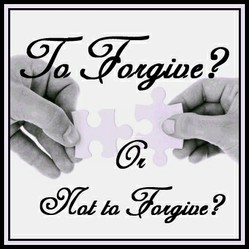How can she forgive him for hiding something so important from her? How can he forgive her for talking that way in front of his parents? Romantic partners, friends, children, parents, teachers, colleagues, bosses, employees - anyone can make a mistake that requires an apology before there is any hope of healing the relationship.
Insults and hurtful behaviors can have such serious repercussions. The pain of betrayal and loss of trust is excruciating. The humiliation and shame can be debilitating. How can they think that "I'm sorry" could ever hope to put the pieces back together again?
In fact "I'm sorry" alone is insufficient. It has to be a sincere and meaningful apology. There is a way to determine to what extent the apologizer really means it. That doesn't mean you will necessarily forgive the person who hurt you. But it is necessary before there is any thought of reconciliation.








 Visiting an Art Gallery With a Two-Year-Oldon 07/27/2015
Visiting an Art Gallery With a Two-Year-Oldon 07/27/2015
 Using the News to Enhance Jewish Identity in Jewish Kidson 07/24/2015
Using the News to Enhance Jewish Identity in Jewish Kidson 07/24/2015
 Xi'an - Not Just Terracotta Warriorson 06/09/2015
Xi'an - Not Just Terracotta Warriorson 06/09/2015
 Sew Your Own Wedding Dress - or Your Daughter'son 02/06/2015
Sew Your Own Wedding Dress - or Your Daughter'son 02/06/2015



Comments
While getting to forgiveness is a good place to arrive it, it is generally a long process and should definitely be that - a process. Thanks for your comment, Lybrah.
This is very true and very well written. As you mentioned, forgiving without having to continue the relationship, is the best thing to do when you really do not have the desire to have a contact with the person who continuously hurt you. Having hatred in mind for a long time can have negative effects in our own life. Thanks for writing this!
Thanks so much for your comment. Yes, it is a challenge to be able to handle the person who seems destined to continually hurt us and forgive in our hearts - not for them, but for ourselves.
Hi Sheri, your article provides good guidance on how to spot true repentance, which, sadly, seems very rare nowadays. Sometimes we have to forgive, even in the absence of that, more for ourselves than for the other person. Sometimes we just have to accept that some people are extremely limited (character wise) and barring a miraculous attitude change, will never apologize. It's very true that we don't have to continue in a relationship with someone who has hurt us and will likely continue to. We can forgive from a safe distance.
Pinned and voted up.